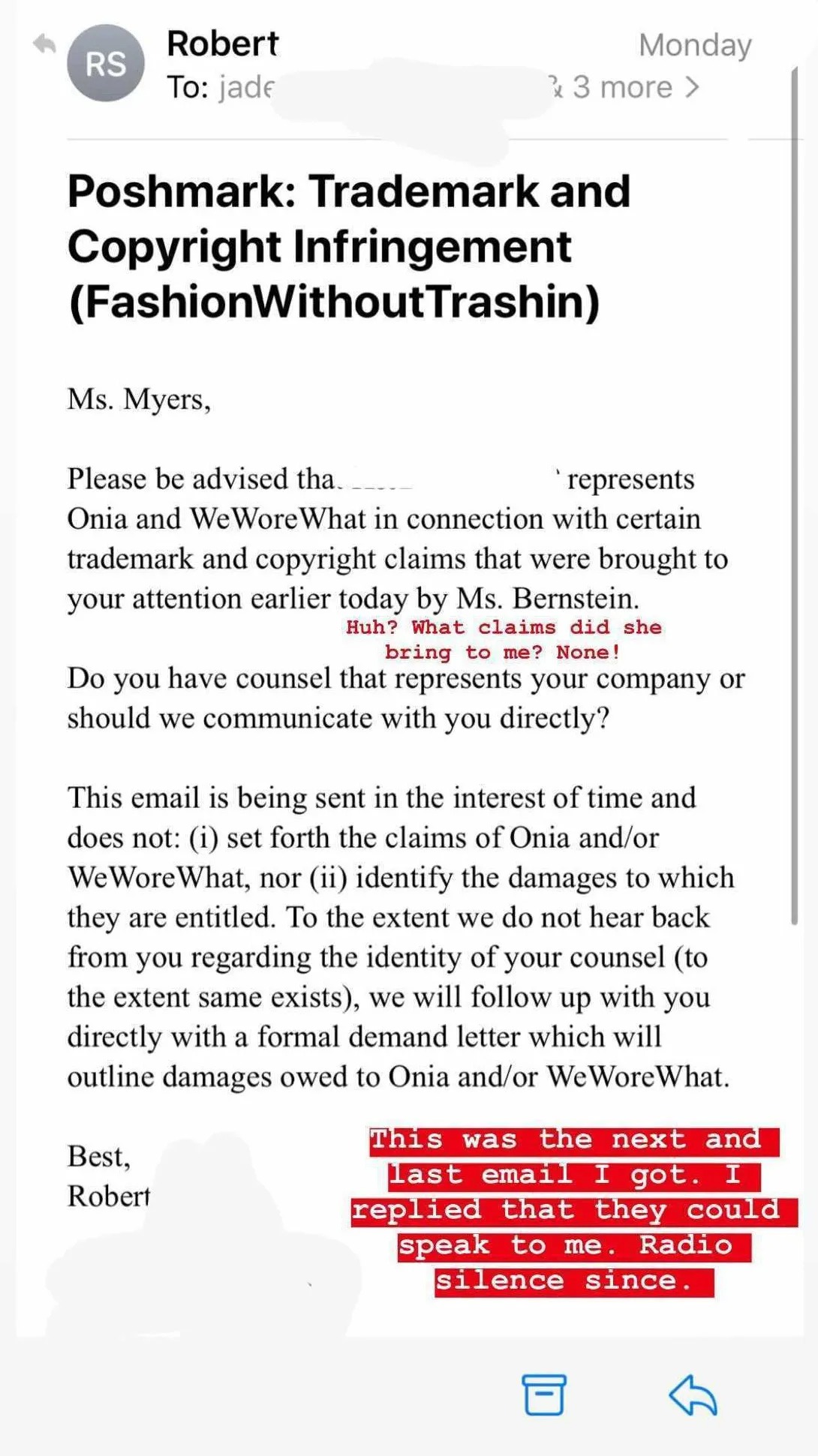
 So, Bernstein took the legal approach. A legal team representing the brand sent Myers a letter claiming she was violating the brand’s copyrights by listing the items in her store. They were threatening to have her Poshmark store shut down.
Myers’ story is just one example of a growing trend in the fashion reselling industry. Big fashion brands are coming after small resellers for listing their products. These aggressive takedown notices threaten the livelihoods of resellers.
According to legal experts spoken to for the report, what the big brands are putting resellers through is illegal. See, you are not breaking any law by reselling an item you have bought. Reselling is protected by the first sale doctrine which, according to law professor Yvette Liebesman of St. Louis University, means that you do not need the original seller’s permission to resell a product, as long as you are honest about its condition.
But big brands are filing and sending takedown notices anyway, because they have the financial incentive to do so, and corporate lawyers to push small resellers.
One explanation is that big brands have realized that the second-hand fashion market is booming, and they want a part of it.
According to an analysis by GlobalData, the second-hand market will double by 2025 to reach $6.4 billion. Big fashion brands like Levi’s now have in-house second-hand and vintage sections.
The aggressive takedown notices could also be an attempt to get the reselling laws changed.
Read more at: ReclaimTheNet.org
So, Bernstein took the legal approach. A legal team representing the brand sent Myers a letter claiming she was violating the brand’s copyrights by listing the items in her store. They were threatening to have her Poshmark store shut down.
Myers’ story is just one example of a growing trend in the fashion reselling industry. Big fashion brands are coming after small resellers for listing their products. These aggressive takedown notices threaten the livelihoods of resellers.
According to legal experts spoken to for the report, what the big brands are putting resellers through is illegal. See, you are not breaking any law by reselling an item you have bought. Reselling is protected by the first sale doctrine which, according to law professor Yvette Liebesman of St. Louis University, means that you do not need the original seller’s permission to resell a product, as long as you are honest about its condition.
But big brands are filing and sending takedown notices anyway, because they have the financial incentive to do so, and corporate lawyers to push small resellers.
One explanation is that big brands have realized that the second-hand fashion market is booming, and they want a part of it.
According to an analysis by GlobalData, the second-hand market will double by 2025 to reach $6.4 billion. Big fashion brands like Levi’s now have in-house second-hand and vintage sections.
The aggressive takedown notices could also be an attempt to get the reselling laws changed.
Read more at: ReclaimTheNet.org
“Massive meltdown”: 40% of Nasdaq companies are down more than half from their highs
By News Editors // Share
Google reveals 972 percent increase in searches for “sell ethereum” as crypto value plunges
By Mary Villareal // Share
DuckDuckGo is working on a privacy-focused desktop browser
By News Editors // Share
Instagram and Facebook block quote from Thomas Paine for “false information”
By News Editors // Share
Smuggling networks exploit unsecured Northern U.S. Border as indictments mount
By ljdevon // Share
Meta plots facial recognition for smart glasses amid political tumult
By willowt // Share
Why your 30s are the decade to fortify your bones
By willowt // Share
Echoes of Resistance: Exposing Zionism and the brutal truth behind Israel's colonial project
By kevinhughes // Share
Trump says kidnappers of Savannah Guthrie's mother could face death penalty
By lauraharris // Share











